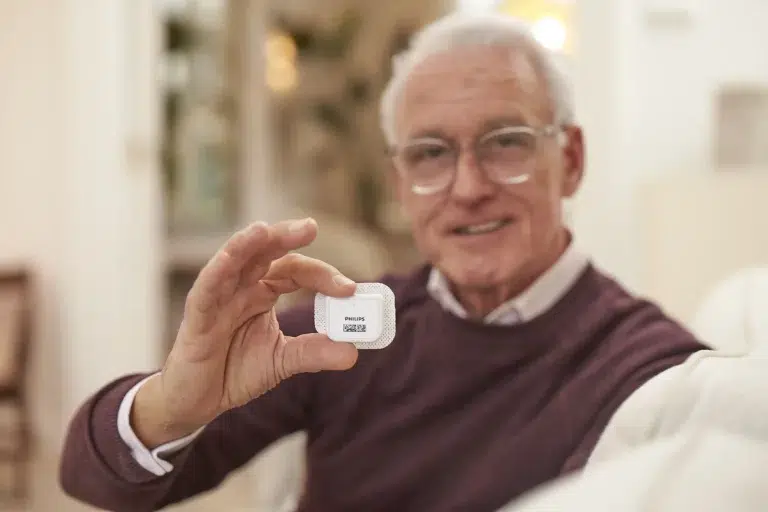Clinics, pharmacy chains and concierge doctors are treating patients more like consumers — and winning in the marketplace. Healthcare providers that ignore this trend are going to lose out.
So Board of Innovation is working with leading companies and stakeholders to innovate based on lessons learned from other consumer segments. This includes making care more timely and personalized, and making diagnostics and treatment more accessible.
Do patients really have to be patient?
The phone in the doctor’s office is ringing and ringing and ringing. – “Please come talk to a patient in their hospital room.” “A patient wants the prescription sent to the pharmacy next to their house.” “A patient’s insurance is not going through.” More and more calls. At this busy moment, another patient, who didn’t have an appointment, walks into the doctor’s office.
Just as they were taught to do in medical school, the doctor strives to communicate with the unexpected patient in a caring and compassionate manner. Say Hello. Address the patient by name. If necessary, apologize for making them wait. Start with open-ended questions. At the same moment, though, the doctor is at the computer, looking for all pertinent information about the patient.
One of our lead healthcare consultants, Maria Putilina, reflects on her time spent working as a surgical resident at a fast-paced NYC hospital. “There were very few moments when I could have allowed myself to slow down and have a proper conversation with my patients. Instead, I spent 99 percent of the time trying to extinguish the fires that were popping up here and there.”
These are not new problems, but people now expect more from their healthcare experiences. At a time when new technologies are enabling better communication and more personalization in so many other areas of life, they expect the same from healthcare providers. One of our lead healthcare consultants, Andrea Crossley, recalls the first project she did for healthcare. It was for a medical diagnosis center and our team came to the conclusion that people shouldn’t even be called patients, because that already assumes that they have to be patient and wait.

We at Board of Innovation believe that healthcare should be more prompt, more personalized and more consumer-friendly. To get there, healthcare professionals need to simplify and streamline their processes to focus more on each individual person that seeks care.
When reflecting on personalization, EMEA Business Designer and Systems Theorist, Pumla Maswanganyi shares the importance of reframing personalized healthcare as a first step: “It may seem counterintuitive, but personalization could be a gateway to meeting both patients and clinicians needs expeditiously. Being able to understand the nuances of patients’ needs allows us to be more targeted in how we design for them, and in turn navigate how we can leverage existing tools to free the healthcare practitioners from additional obligations that do not serve patients.”
Paradoxically, artificial intelligence can humanize healthcare

PhysIQ enables continuous remote patient monitoring using wearable sensors. For patients leaving an acute care facility, living with chronic conditions, or recovering in a hospital-at-home environment, PhysIQ’s medical grade platform arms clinicians with 24/7 insights to follow and treat patients across the entire care continuum, including virtual care and hospital-at-home models.
Best Buy Health is also dedicated to helping elderly people stay in their own homes while still receiving quality care. It supports independent living with products and services including smart home technology to prevent falls; Urgent Response Agents available 24/7 at the touch of a button to offer help in emergencies big and small; and an enterprise platform that enables healthcare organizations to leverage remote patient monitoring, telehealth technology, and patient engagement tools.
At BOI, we have contributed to several solutions like this. These range from supporting a global leader in turning the most potent emotional pain point into an impact for patients with a chronic condition, to helping a MedTech giant develop a wound care wearable device that monitors activity; to incentivize patients to take charge of their health.
According to Pierpaolo Padula, our principal healthcare consultant and the lead of one of these projects: “We see many of our clients increasingly attempting to leverage digital solutions, which will uncover opportunities to deliver timely and personalized follow-up care. This could include ensuring medication adherence, adherence to the proper rehabilitation and physical therapy, remote monitoring of symptoms, and timely follow-up checkups. The fact that these solutions can lead to better outcomes is not even a question. Yet, quantifying the clinical benefit and getting reimbursed for the solution is often where those companies struggle.”
What is next for us

As an innovation consulting agency, it is our role to support pharmaceutical and medical technology companies in developing innovative products and services that provide “what their customers need next.”
The future of healthcare is here and this means catering to patients’ unique values, needs, and preferences. So let’s work together to shape what life needs next, leveraging technology, engaging patients and changing the system for everyone’s benefit.


